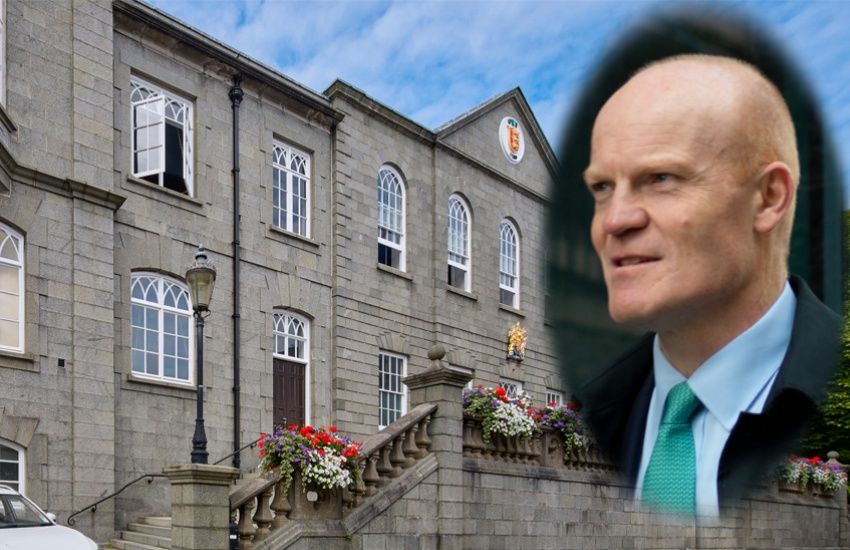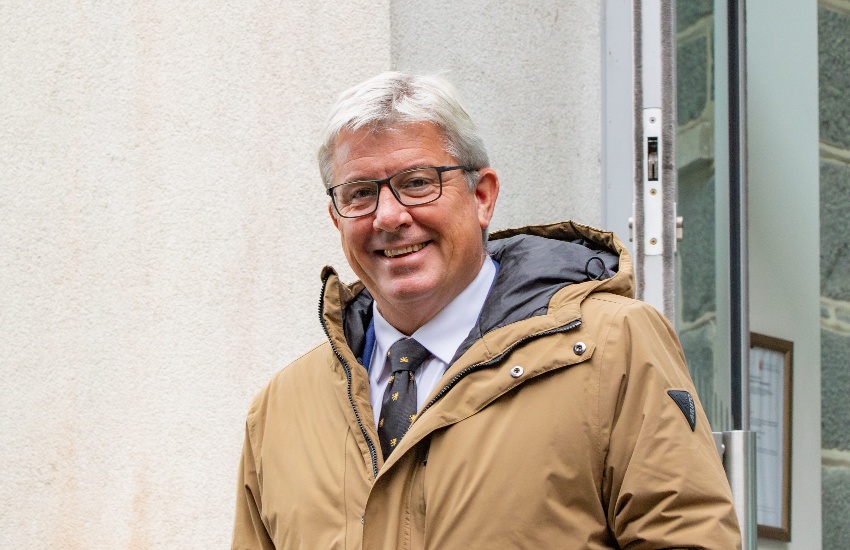


Last week in the States did not surprise. It followed a predictable path with a predictable outcome. Hours and hours of debate with little discernible progress and an incomplete agenda that will need to finished in January.
There was a relatively short debate on progress by the Guernsey Development Agency. This effectively gave a green light to the Policy & Resources Committee unlocking up to £1.6m to allow the GDA to move their vision on.
P&R had one amendment to their own policy letter. This arose as a compromise after I had pointed out to them that the draft Land Transfer Policy was unduly restrictive. There are already multiple hurdles and approvals needed before any development takes place without putting in place any more barriers. The Land Transfer Policy is intended to deal with which States’ owned land, at some point, is transferred to the GDA for development. The draft policy contained a principle that any land transfers must be either neutral to or improve the financial position of the Ports. The States’ Trading Supervisory Board predictably, but a little disappointingly, opposed the very modest amendment which sought to give recognition to wider social and economic benefits. Such benefits are, of course, the whole point of the GDA. The STSB’s opposition was an instinctive reaction by its officers and political leadership to protect the Ports. They perhaps see it as their primary role to worry about the present and near future rather than the inherent uncertainty which comes with the delivery of the GDA’s longer term vision.
The Helyar-led Requete on the reduction in the number of States’ members by ten dominated the week.

Pictured: Deputy Mark Helyar brought the Requete on reducing the number of States Members.
The first amendment from Deputy John Gollop to increase the number by seven back up to 45 where it was prior to 2016, set the tone for the whole debate. It was long but the result was an inevitable defeat, with only three members supporting the idea. Knowing there was very little support for a reduction of ten, even from the Requerants, as Deputy Sue Aldwell admitted, Deputy Neil Inder’s attempt to reach for a classic compromise of a reduction in five was to be expected. The fact it had been clutched from thin air was underlined when, after its defeat, he reached for another number – three – in an increasingly desperate but ultimately pointless effort to achieve something from the debate.
P&R’s solution was to create a special committee to look at the whole issue next term. This won favour but was ultimately trumped by a pragmatic alternative from Deputy Peter Roffey to give the hospital pass to the States’ Assembly & Constitution Committee. His not unreasonable argument was that their mandate best suited the topic, without needing to create a new committee.
Deputy Helyar achieved exactly what he wanted by his bringing the Requete. He had no expectation that it would pass. But he knew it would take hours of debate with multiple amendments in the States discussing themselves, to the exclusion of matters of policy of far greater importance to the public. The Requete was intended to prove States’ dysfunctionality – as if that was really needed – and it achieved that. At a superficial level, it is very easy for the casual observer to conclude that the States just needs to be smaller. However, no evidence was or can be offered to prove a hypothesis that a smaller States will of itself lead to higher quality candidates, members and decision making.
The Requete will have appealed to a hardcore who believe that politics would be so much easier if it was simply run like a business boardroom. But politics is not about common sense and logic. It’s about emotional engagement and communication as the community travels together on a journey. Those in the political bubble may even convince themselves that the people outside really care strongly about the architecture of government. They do not. Executive government, island-wide voting, 38, 33 or 28 is just white noise to most, who are too busy living their lives, earning enough money to pay their bills. The drumbeat of the debate will have done no more than reinforce established stereotypes about the States and its members.
Deputy Helyar has said that he might well bring another Requete to have a referendum on executive government. If he does, that will fail too. A ‘yes’ or ‘no’ referendum on whether the island wants executive government would be little more than an empty opinion poll, without any detail of the structure envisaged or the conditions required to enable it to succeed.
Debate also began on a second Requete. This one is being led by Deputy Sasha Kazantseva-Miller and is more substantial. It is seeking to consolidate all the housing policy bits of Environment & Infrastructure and Employment & Social Security’s mandates into a single Committee for Housing.
Pictured: Deputy Sasha Kazantseva-Miller brought a Requete on creating a new housing committee.
This would recreate the Housing Department that was abolished in 2016. The case for change is that housing is in crisis, not least because of population growth since the pandemic and Brexit, and the policy response is slow to deliver real change on the ground. The case against is that all the work will be undertaken by the same officers and it does not really matter where they sit or how you badge them. It will be argued that moving the deckchairs in the midst of the maelstrom will do no more than cause delay and cost with little change in outcome.
Debate will resume in January. The outcome for that meeting is less predictable and the decision, whichever way it goes, will prove more consequential for real policy making than members debating how many of them there should be.